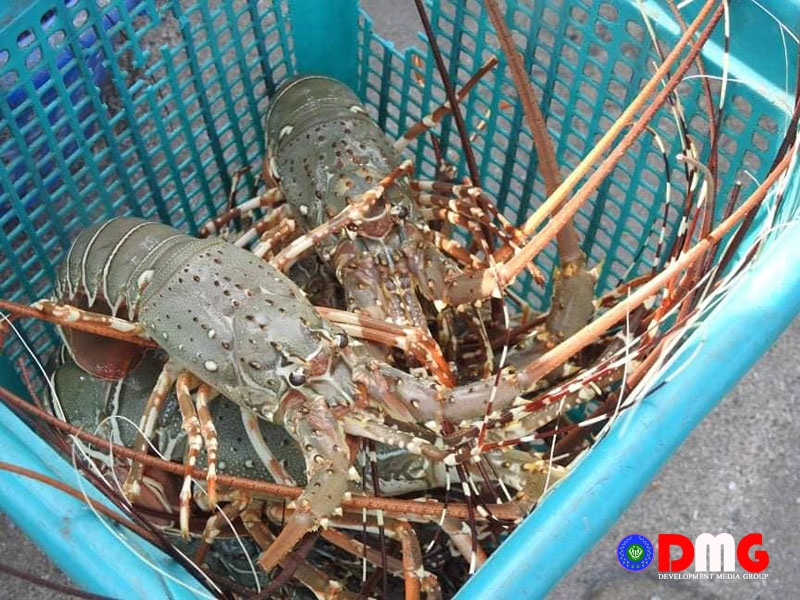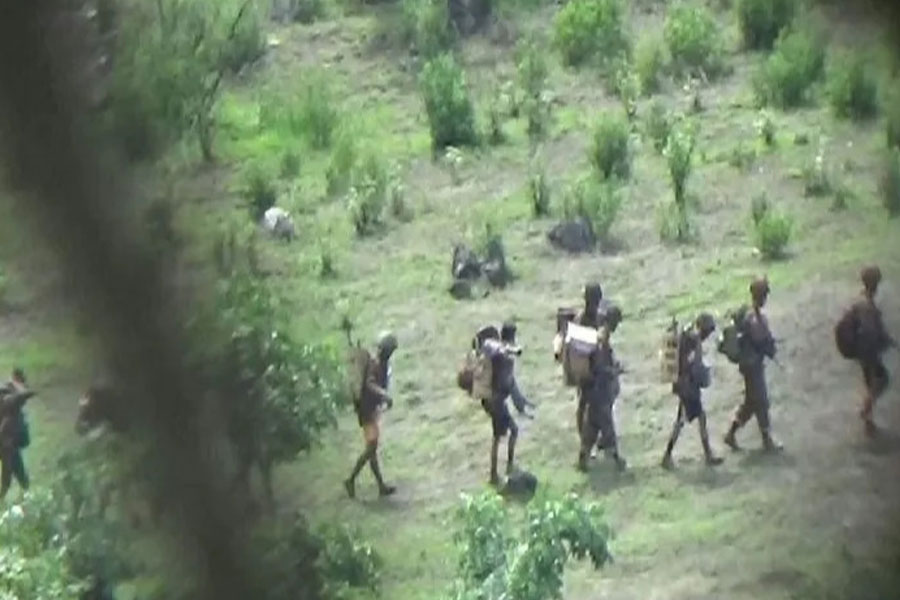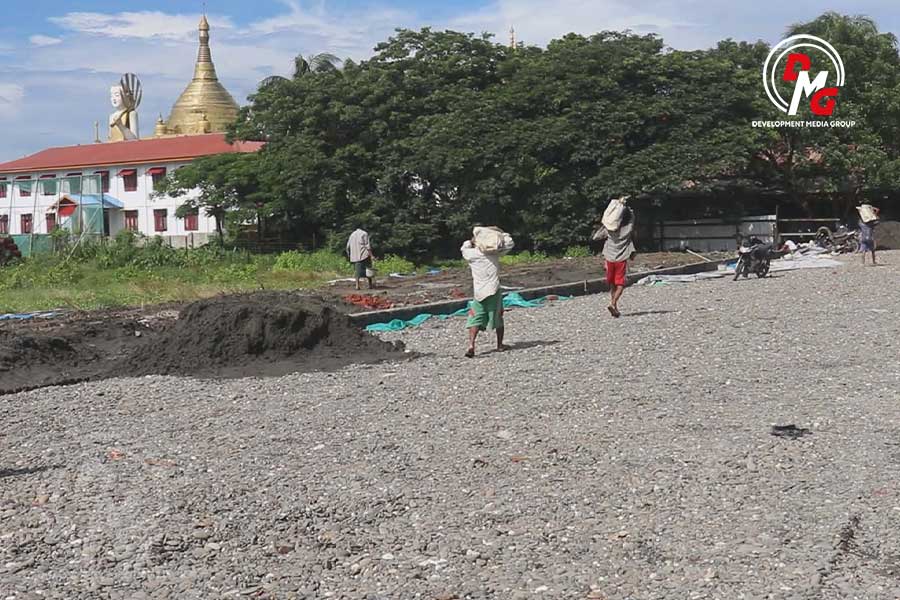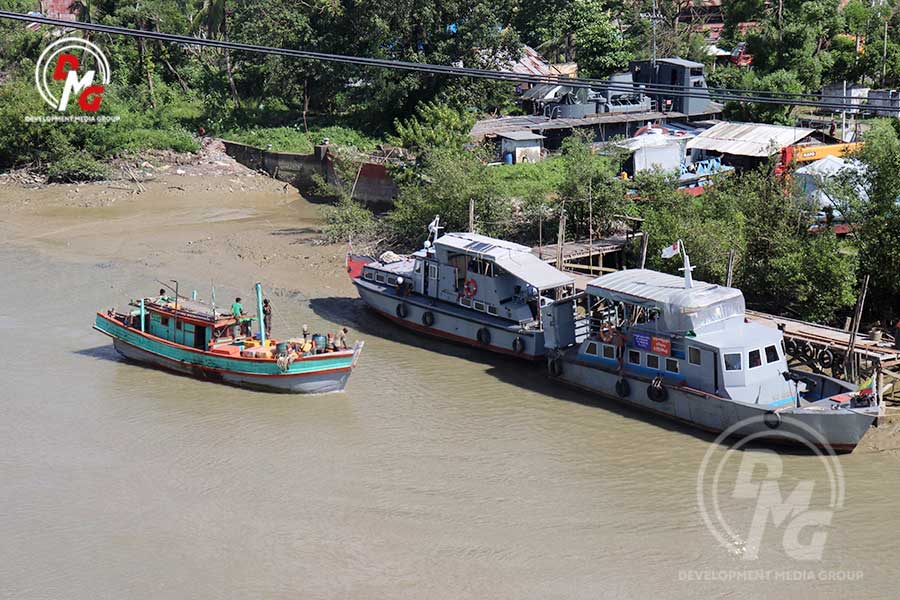- Junta launches major offensive to retake strategic Mawchi mining town
- Extreme poverty drives Sittwe residents to dismantle abandoned houses for income
- Weekly Highlights from Arakan (Feb 23 to March 1, 2026)
- Over 300 political prisoners freed from 10 prisons nationwide
- DMG Editorial: Between War and Opportunity - A New Border Reality for Bangladesh and Arakan
Crab and crayfish exports from Arakan State to China reauthorised, with conditions: fisheries official
Mud crabs and crayfish without white-spot syndrome virus (WSSV) have been allowed to re-export from Arakan State to China, according to the state’s Fisheries Department.
20 Jun 2022

DMG Newsroom
20 June 2022, Sittwe
Mud crabs and crayfish without white-spot syndrome virus (WSSV) have been allowed to re-export from Arakan State to China, according to the state’s Fisheries Department.
Chinese officials notified Myanmar authorities that the virus had been detected in mud crab and crayfish exported from Myanmar to China and the export of seafood has been suspended temporarily since May 23.
Samples of mud crab and crayfish from Arakan State townships were sent to a laboratory in Yangon for testing, and vendors from other areas were allowed the re-export of mud crab and crayfish as the virus hasn’t been found in their marine products, said an official from the Fisheries Department.
Twenty-three mud crab breeders and 18 crayfish breeders have been allowed to re-export their marine products. A total of 102 samples of mud crab and crayfish have been sent to a laboratory in Yangon for testing and townships deemed the source of the virus will see their exports suspended, the official added.
“The laboratory in Yangon is not testing a single sample. There have been delays as the lab is testing laboratory samples across the country. We will announce the list of people who will be allowed to re-export mud crab and crayfish once we get the results from the lab,” U Thet Oo, director of the Department of Fisheries, told DMG.
U Thet Oo said businessmen and merchants also need to cooperate with the department and if they do not cooperate sufficiently, China will not buy mud crab and crayfish from Arakan State.
The Department of Fisheries has said the sale of prawns in Myanmar will be banned from June, but merchants will be allowed to export their marine products in certain cases due to market difficulties.
The ban on exporting mud crab and crayfish has been in place for almost a month, making it difficult for businesses to sell their products at a loss domestically due to deterioration of stockpiles.
“Arakan State is a prosperous fishery state, and the people are facing difficulties because the export of fishery products has been banned. Some people go abroad to seek a better life due to job scarcity in Arakan State,” said U Khin Aye Maung, a crayfish breeder in Kyaukphyu Township.
Ma Oo Hsan May from Pauktaw Township said that those who catch mud crabs used to sell them at around K3,000 per kilogramme, but now they are selling at K1,500 per kilogramme.
“Mud crab prices have dropped by half due to the lack of buyers. The number of fishermen has dwindled among a handful of other fishing activities,” she added.
WSSV is most common in aquatic animals including shellfish, and can cause white, pinkish-reddish-brown, and reddish-brown spots, as well as hard shells and broken skulls in immature shrimp, according to the Fisheries Department.
The Arakan State fisheries official said that if the mud crab and crayfish are infected but cooked properly, there would be no danger to humans.
Arakan State exported more than 100 tonnes of crayfish and 400 tonnes of mud crab to China in the previous fiscal year, according to the Department of Fisheries.

















